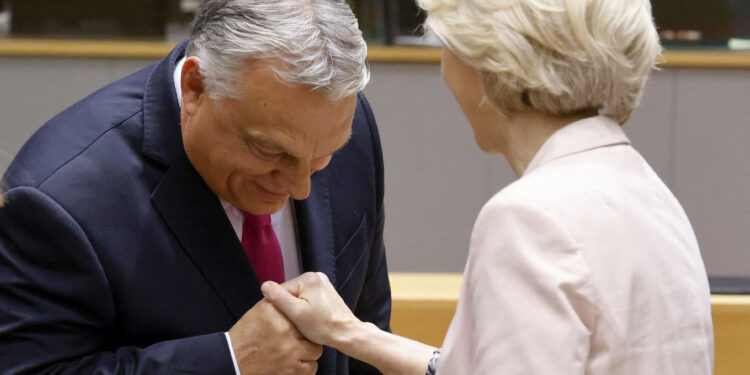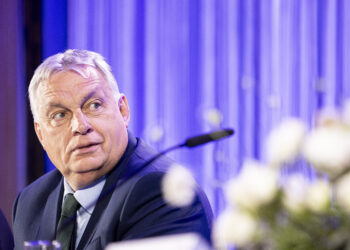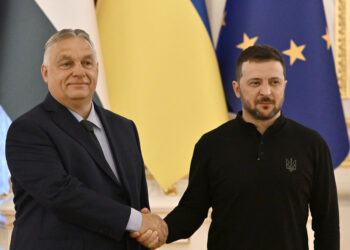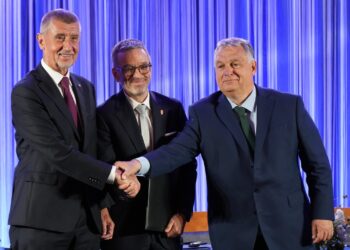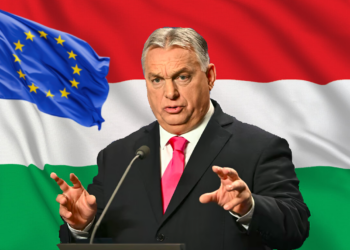Brussels – The “peace mission” undertaken by Viktor Orbán “undermines the unity” of the European Union. The Hungarian premier is in Moscow today (July 5) to discuss the situation in Ukraine with Russian President Vladimir Putin. A visit that embarrasses Brussels since it comes just five days after the start of Hungary’s rotating Presidency of the EU Council. It also “casts serious doubt on the traditional visit of the European Commission” to the country that holds the six-month leadership of the 27.
While Orbán is at the Kremlin, protests from leaders are rising from the EU capital. The President of the European Council, Charles Michel, abruptly clarified as early as late yesterday that Orbán has no mandate from the EU. In the morning, the messages of the High Representative for Foreign Affairs and President of the European Commission, Josep Borrell, clarified that the official position of the 27 on the conflict “excludes official contacts between the EU and Putin,” according to Ursula von der Leyen “appeasement will not stop Putin.”
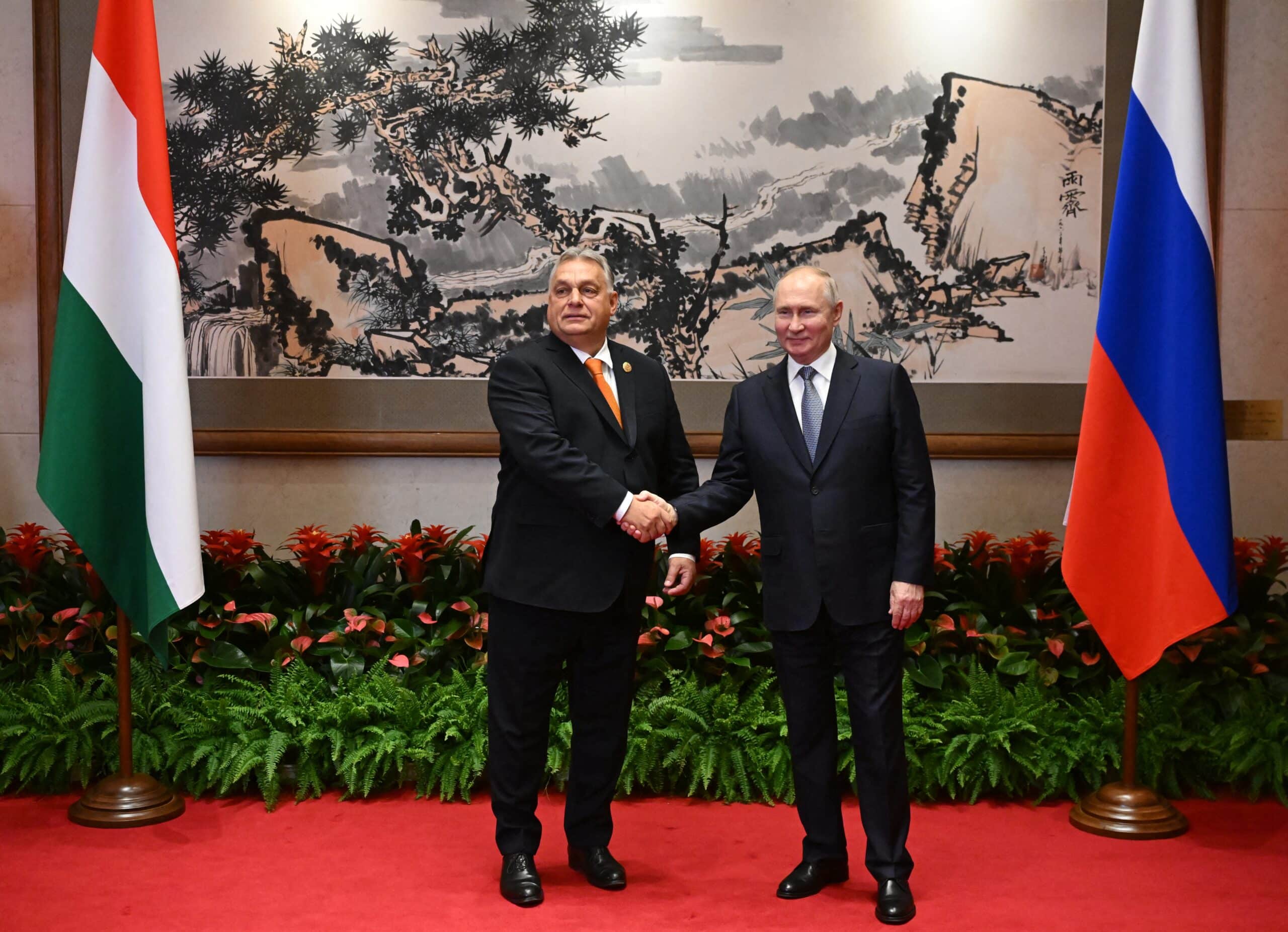
The European Commission’s line on the Budapest mission — only three days ago Orbán went to Kyiv to ask Zelensky for a ceasefire — was clarified by chief spokesman Eric Mamer during the daily press briefing: “This is about appeasement and not peace, and we believe it undermines the unity and determination we must show to end this war,” he said, further clarifying that “We were not informed of the visit. It was not coordinated with us or with anyone else.” Just as Orbán’s first outburst in October 2023, when he met and shook hands with Putin during a trip to Beijing, had not been coordinated with his European counterparts.
The irritation is such that the Commission already foresees the first consequences: “This visit to Moscow seriously casts doubt on the traditional visit of the Presidency (of the Commission, editor’s note) to Hungary, which we had planned immediately after the summer break,” Mamer announced. Indeed, it is an established practice for the President of the European Commission and the College of Commissioners to visit the country holding the rotating Presidency of the EU Council.
The spokesman for the EU executive pointed out that -even if Orbán noted that the rotating Presidency does not have a mandate to negotiate on behalf of the EU- “the symbolism is very clear,” because “this trip takes place five days after the start of the Hungarian presidency.” The Hungarian Premier, in a photo posted on his X account, accompanied by the caption “The peace mission continues, second stop: Moscow,” used the logo chosen by Budapest for the six-month EU presidency. Orbán responded to the storm of criticism he received between yesterday and today in his own way, by re-launching: “It is not possible to find peace by sitting comfortably in an armchair in Brussels,” he attacked, “we cannot sit back and wait for the war to end miraculously.”
The “confusion” purposely sown by Orbán, as denounced by Estonian Prime Minister – and candidate to replace Borrell as head of EU diplomacy – Kaja Kallas, is also evident in Putin’s statements upon the arrival of his longtime friend. “I understand that this time he has arrived not only as our partner,” noted Putin, who plans to show Orbán the details of Moscow’s proposals for a peaceful settlement of the conflict in Ukraine. According to the Kremlin press office, the Russian president reportedly told Orbán that he is “ready to discuss with you the nuances on this issue, and I expect you to make me aware of your position and that of the European partners.”
The #peace mission continues. Second stop: #Moscow. pic.twitter.com/kPOkKBsJQm
– Viktor Orbán (@PM_ViktorOrban) July 5, 2024
On the subject of the “shameful” images of Orban from Puti, MEP Sandro Gozi, secretary general of the European Democratic Party and member of the Renew Europe presidency recalls that “with a resolution last April 24, the European Parliament had highlighted all the doubts and concerns about the real capacity of this rotating Council presidency to ensure the continuity of the EU agenda and to represent the Council in its relations with the EU institutions and other countries.” According to Gozi, “unfortunately, the Council made our call to move the Hungarian presidency fall on deaf ears. To be outraged today, therefore, by the leaders of the Council, is as hypocritical as ever: it would have been enough to listen to Parliament to avoid such a shameful image that throws discredit on all the European institutions.”
English version by the Translation Service of Withub